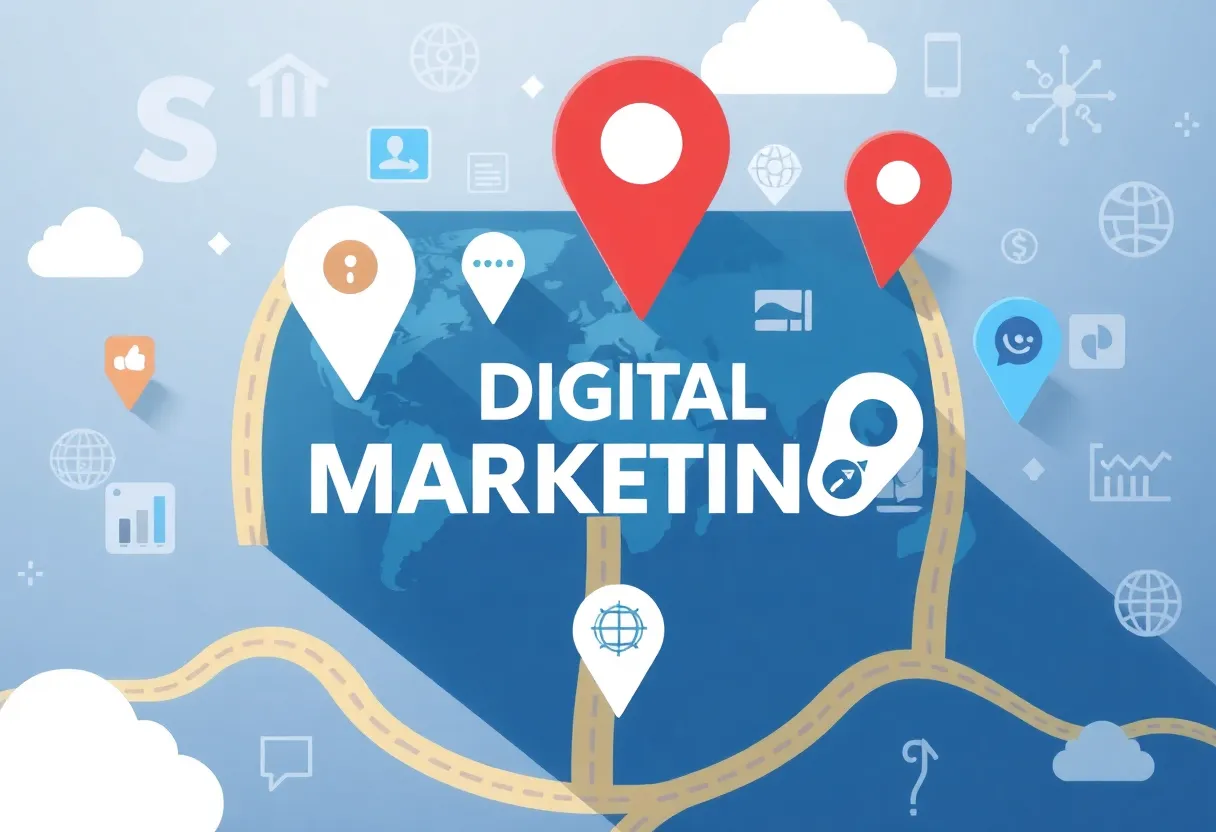News Summary
A solid digital marketing strategy framework is essential for navigating the complex digital landscape. It provides clarity, enhances communication, and aligns a marketing team’s objectives. This article discusses various popular frameworks and their roles in optimizing marketing strategies, measuring performance, and fostering collaboration for long-term success.
The Importance of Digital Marketing Strategy Frameworks in Achieving Success
Have you ever tried to navigate a new city without a map? You might find interesting spots along the way, but getting lost is just as likely. Similarly, when it comes to digital marketing, having a solid strategy framework is essential. Think of it as your GPS, guiding you through the winding roads of the digital landscape. Without it, you might achieve short-term gains, but long-term success is a different story altogether.
What Are Digital Marketing Frameworks?
Digital marketing frameworks outline the key processes, channels, and touchpoints necessary for success in your marketing endeavors. They serve as a guiding document that clarifies objectives, and insights on target audiences, while also helping your team communicate effectively. Let’s break it down: just as a blueprint is crucial for building a house, a good framework is vital in building your marketing strategy. This clarity allows the entire marketing team to work more cohesively toward shared goals.
Why Are Frameworks Important?
Marketing experts have consistently highlighted the need for frameworks to establish clear objectives and adapt to your audience’s needs. They simplify complex marketing processes, making it easier for team members to communicate with each other and with clients. With a solid framework in place, you can focus on the important metrics that truly matter and optimize your strategies without losing sight of your consumer’s evolving behavior.
The Role of AI in Digital Marketing
In today’s digital landscape, Artificial Intelligence (AI) has become integral to enhancing efficiency. However, it’s important to strike a balance between tech and human creativity to produce unique and captivating content. Digital marketing frameworks help marketers choose the best AI tools for executing strategies effectively. This allows for analysis and smart content generation while staying aligned with the brand’s voice.
Frameworks for Measurement and Optimization
One of the standout features of these frameworks is their capacity for optimally measuring strategy performance. Because the digital realm is always changing, having a framework enables real-time optimization to achieve better results. Data analytics is crucial here, providing insights that can improve both digital and traditional marketing strategies.
Popular Digital Marketing Frameworks
Several frameworks have received recognition in the digital marketing world for their effectiveness:
- The Flywheel Framework: Focuses on attracting, engaging, and delighting customers.
- The STP Model: Useful for targeting, segmenting, and positioning products in the marketplace.
- The AARRR Framework: A great choice for startups to track user behavior and optimize sales.
- Forrester’s “5 Is” Model: A valuable tool for creating online communities and enhancing customer loyalty.
- Nir Eyal’s Hook Model: This framework is tailored towards habit-forming products and services.
- The RACE Planning Model: A solid way to manage customer journeys and generate leads.
- McKinsey’s 7S Model: This model aligns marketing efforts with internal processes.
- Marketing Funnel Framework: Helps in understanding user journeys from brand awareness all the way to purchase.
Each of these frameworks acts like a blueprint, guiding brands through the challenging terrain of marketing. They help analyze insights, adjust strategies, nurture customer relationships, and adapt to changing trends.
Collaborating for Success
For organizations looking to adopt a particular framework, seeking out specialized marketing strategy agencies can be a brilliant move. They can help identify frameworks based on industry, target market, and specific business goals. Remember, while quick advertising may produce immediate results, having a strategic plan can pave the way for sustainable long-term success.
Conclusion
In a constantly changing digital world, where technology rapidly evolves and consumer behavior shifts, the use of digital marketing frameworks can provide a solid structure for your marketing strategies. They act as a guide, focusing efforts, prioritizing workflows, and ultimately improving productivity. So, let’s embrace these frameworks and navigate the path to marketing success together!
Deeper Dive: News & Info About This Topic
HERE Resources
Spanish Regulatory Agency Takes Action Against Booking.com
Marketing Agility: A Necessity in Today’s Fast-Paced Digital Landscape
Insights from the Heart of Marketing: A New Wave in Customer Engagement
Toronto, Canada – Thriving in a Tight Budget: Smart Content Marketing Strategies
Navigating New Waters: How CPG and Retail Industries are Shaping the Future
Columbia Embraces Delta-9 Seltzers: A Refreshing Twist on Social Drinking
La technologie numérique en constante évolution : Yahoo et AOL
Additional Resources
- Search Engine Land: How AI agents are revolutionizing digital marketing
- Forbes: What Marketing Strategy Frameworks You Need to Succeed
- Harvard Business Review: The Importance of Marketing Strategy Frameworks
- Smart Insights: Importance of Marketing Strategy Frameworks
- MarketingProfs: Why You Need a Marketing Strategy Framework to Succeed









